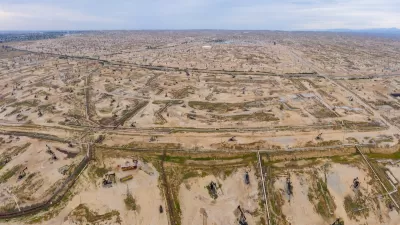Paul Stenquist analyzes the surprising influence that geography has on the carbon footprint of electric vehicles.
As Americans increasingly turn to electric vehicles due to rising gas costs and interest in reducing greenhouse gas emissions, a new report shows that another set of calculations should be considered. The report, released by the Union of Concerned Scientists on Monday, shows that "the effect of electric vehicles on the amount of greenhouse gases released into the environment can span a wide range, varying with the source of the electricity that charges them. "
Their well-to-wheels analysis considers the full cycle of energy production. "It demonstrates that in areas where the electric utility relies on natural gas, nuclear, hydroelectric or renewable sources to power its generators, the potential for electric cars and plug-in hybrids to reduce carbon dioxide emissions is great. But where generators are powered by burning a high percentage of coal, electric cars may not be even as good as the latest gasoline models - and far short of the thriftiest hybrids."
Stenquist examines the geographical breakdown of electricity generation. Electricity in the midsection of the U.S. is generated in large part by coal, while cities like Seattle and Los Angeles, and surprisingly, Buffalo and New Orleans, are in regions where there is cleaner power.
According to data released in 2010 by the United States Energy Information Administration, "45 percent of the country's electricity is generated by burning coal, the dirtiest fuel. Natural gas, a much cleaner fuel, accounts for 24 percent of electricity production, a figure that is shifting rapidly with price swings. Nuclear plants generate 20 percent of the nation's power, while wind, solar and geothermal sources provide 3 percent." While these numbers help to educate, they also affirm the need for changes in electric power generation in order to maximize the use of electric and hybrid cars.
FULL STORY: How Green Are Electric Cars? Depends on Where You Plug In

Maui's Vacation Rental Debate Turns Ugly
Verbal attacks, misinformation campaigns and fistfights plague a high-stakes debate to convert thousands of vacation rentals into long-term housing.

Planetizen Federal Action Tracker
A weekly monitor of how Trump’s orders and actions are impacting planners and planning in America.

In Urban Planning, AI Prompting Could be the New Design Thinking
Creativity has long been key to great urban design. What if we see AI as our new creative partner?

King County Supportive Housing Program Offers Hope for Unhoused Residents
The county is taking a ‘Housing First’ approach that prioritizes getting people into housing, then offering wraparound supportive services.

Researchers Use AI to Get Clearer Picture of US Housing
Analysts are using artificial intelligence to supercharge their research by allowing them to comb through data faster. Though these AI tools can be error prone, they save time and housing researchers are optimistic about the future.

Making Shared Micromobility More Inclusive
Cities and shared mobility system operators can do more to include people with disabilities in planning and operations, per a new report.
Urban Design for Planners 1: Software Tools
This six-course series explores essential urban design concepts using open source software and equips planners with the tools they need to participate fully in the urban design process.
Planning for Universal Design
Learn the tools for implementing Universal Design in planning regulations.
planning NEXT
Appalachian Highlands Housing Partners
Mpact (founded as Rail~Volution)
City of Camden Redevelopment Agency
City of Astoria
City of Portland
City of Laramie





























